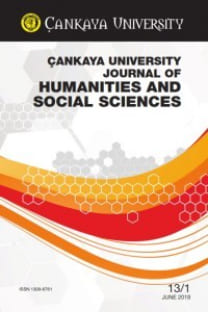Coming Across Home: Thomas Hürlimann’s Heimkehr (Homecoming)
Surely, the archetype of all those who returned home, Homer’s Odysseus, often thought of Ithaca while being away from his homeland. Dreaming of home from abroad can express a yearning for being there and for nostos (homecoming). Odysseus’ return, however, does not constitute a happy reunion with home and family. Instead, it first sparks an act of ruthless violence when Odysseus massacres the usurpers who are trying to take possession of his wife and his throne. Homer’s insight here suggests the recognition that home cannot be thought of or grasped as something that actually exists, because both “home” and the one thinking of it are subject to perpetual change. Twentieth-century thinkers seem to concur and describe “modern man” as incapable of ‘dwelling’ (Martin Heidegger) and as beings who are trapped in a backward-looking gaze (history, memory, home) while relentlessly being hurled to the (unknown) future (Walter Benjamin). In Heimkehr (Homecoming, 2018), renowned and prize-winning Swiss philosopher, dramatist, and writer Thomas Hürlimann introduces Heinrich Übel. This protagonist suffers a series of physical (and mental) displacements. The more he thinks of home and about going home, the more he recognizes that there is no such thing as “home” in the world of life experiences. Hürlimann’s text is a picaresque quasi coming-of-age-novel (Bildungsroman) that is permeated with allusions to Homer, Gottfried Keller, E.T.A. Hoffmann, the Bible, and more. The intertextual elements of the novel serve to “deterritorialize” the concept of “home” in the homeless protagonist’s mind and lead to his realizations that home is a location in the imagination and that literature is the guide to this place. Hürlimann’s novel models a way of “dwelling” in the 21st-century world that can be of interest to all who are “displaced”—voluntarily or not.
___
- Auerbach, Erich. “Philology and Weltliteratur.” Translated by Marie and Edward Said. The Centennial Review vol. 31, no.1, 1969, pp.1-17.
- Augé, Marc. Non-Places. An Introduction to Supermodernity. Translated by John Howe. Verso, 2008.
- Bettelheim, Bruno. The Uses of Enchantment. Random House, 1977.
- Browning, Robert. “Home Thoughts from Abroad.” www.poetryfoundation.org.
- Coppola, Francis Ford, director. The Godfather. Paramount Pictures, 1972.
- ---. The Godfather. Part II. Paramount Pictures, 1974.
- ---. The Godfather. Part III. Paramount Pictures, 1990.
- “Dada.” The Art Story Foundation. . theartstory.org.
- Edwards, Blake, director. 10. Warner Brothers, 1979.
- Ette, Ottmar. ZwischenWeltenSchreiben. Literaturen ohne festen Wohnsitz. Kulturverlag Kadmos, 2005. Henneberg, Nicole. “Lust und Verblendung.” Frankfurter Allgemeine Zeitung. 15 October 2018. www.faz.net.
- Homer. The Odyssey. Translated by Robert Fagles. Penguin Books, 1996.
- Horkheimer, Max, and Theodor W. Adorno. Dialektik der Aufklärung. Philosophische Fragmente. Fischer Taschenbuchverlag, 1992.
- ---. Dialectic of Enlightenment. Philosophical Fragments, edited by Gunzelin Schmid Noerr. Translated by Edmund Jephcott. Stanford UP, 2002.
- Hürlimann, Thomas. Heimkehr. S. Fischer, 2018.
- Iyer, Pico. The Global Soul: Jet Lag, Shopping Malls, and the Search for Home. Vintage, 2001.
- Kuhn, Christoph. “Trügerische Heimkehr, stark inszeniert.” 9 September 2018. www.journal21.ch.
- Mathis, Renee. “Dulce Domum: The Longing for Home in Literature (and Our Hearts).” www.circeinstitute.org, 1-8.
- “Migration Statistics.” United Nations Economic Commission for Europe. www.unece.org/stats/migration.html.
- Opie, Iona, and Peter Opie. The Classic Fairy Tales. Oxford UP, 1974.
- Porombka, Wiebke. “Jetzt nur nicht einschlafen.” Die Zeit 45/2018. 31 October 2018,. www.zeit.de/2018/45/heimkehr-thomas-hürlimann-roman-sterben.
- “Trends in International Migration.” United Nations. 17 September 2019. www.un.org
- Wong, Dorothy. “At Home Nowhere and Everywhere: Musings of the Postmodern Hong Kong Citizen.” Asian and African Studies vol.14, 2005, pp. 148-57.
- ISSN: 1309-6761
- Yayın Aralığı: Yılda 2 Sayı
- Başlangıç: 2004
- Yayıncı: Çankaya Üniversitesi
Sayıdaki Diğer Makaleler
Man Engendered: Effeminizing Louis Zukofsky
Reem Adib LULU, Sharifah Nurul Huda ALKAFF
Comic Vision and Comedic Devices in Kingsley Amis’s Lucky Jim
Coming Across Home: Thomas Hürlimann’s Heimkehr (Homecoming)
Axel Honneth’s Critical Response to Habermas’s Critique of Marx
The Failed Struggle for Recognition in Peter Abelard’s Autobiographical Letter Historia calamitatum
